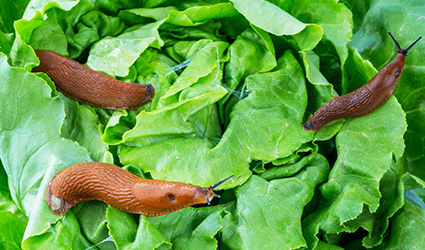What is Rat Lungworm Disease?
August 6, 2018
Source: MedPageToday
 1,053
1,053

Angiostrongyliasis or more commonly known as ‘rat lungworm disease’ has been linked with the consumption of raw vegetables infected with the larvae of the parasite Angiostrongylus cantonensis in the continental U.S.
Eugene W. Liu, MD, of the CDC, and colleagues reported that the CDC identified 12 angiostrongyliasis cases in the U.S. from 2011 to 2017, where 6 patients were reported to have consumed raw vegetables.
Rat lungworm infection is prevalent in Asia and the Pacific Islands. The parasite Angiostrongylus cantonensis lives in rats. Its feces becomes ingested by snails and slugs that crawl on garden vegetables. Then the parasite is transmitted to humans when these infected garden vegetables are "inadvertently ingested by humans".
Usually, Angiostrongyliasis causes temporary mild symptoms. But if the larvae migrates to the brain, it can lead to focal neurologic deficits, eosinophilic meningitis, coma, and death.
Angiostrongyliasis can be identified through polymerase chain reaction testing of a cerebrospinal fluid (CSF) sample. The most commonly reported symptoms include subjective fever, headaches, generalized weakness, and numbness or tingling sensations. Though there is no specific treatment for A. cantonensis infection, 11 patients were administered with systemic steroids and 7 with the anti-parasitic drug named albendazole.
After two months of their initial evaluation, all 12 patients survived well and 11 cases showed great improvement. Four people had ongoing focal neurologic symptoms and one patient had seizures who was then treated with anti-epileptic drugs.
The research team from CDC said, "Healthcare providers, especially those in the southern United States, need to consider angiostrongyliasis in patients with eosinophilic meningitis, particularly those with a history of ingestion of gastropods or raw vegetables contaminated with larvae."
By DduRead more on
- Things to Know before Buying Newborn Baby Incubators March 31, 2022
- Highly Resistant Food Poisoning Bug Responds to Antibiotics September 6, 2018
- Smartphone Based Diagnosis to Identify Mosquitoes Transmitting Infection September 5, 2018
- 3 Natural Plant Extracts Manufacturers on Drugdu.com September 4, 2018
- Shenzhen Chuanggan – Health Assessment Facility Supplier September 4, 2018
your submission has already been received.
OK
Subscribe
Please enter a valid Email address!
Submit
The most relevant industry news & insight will be sent to you every two weeks.



